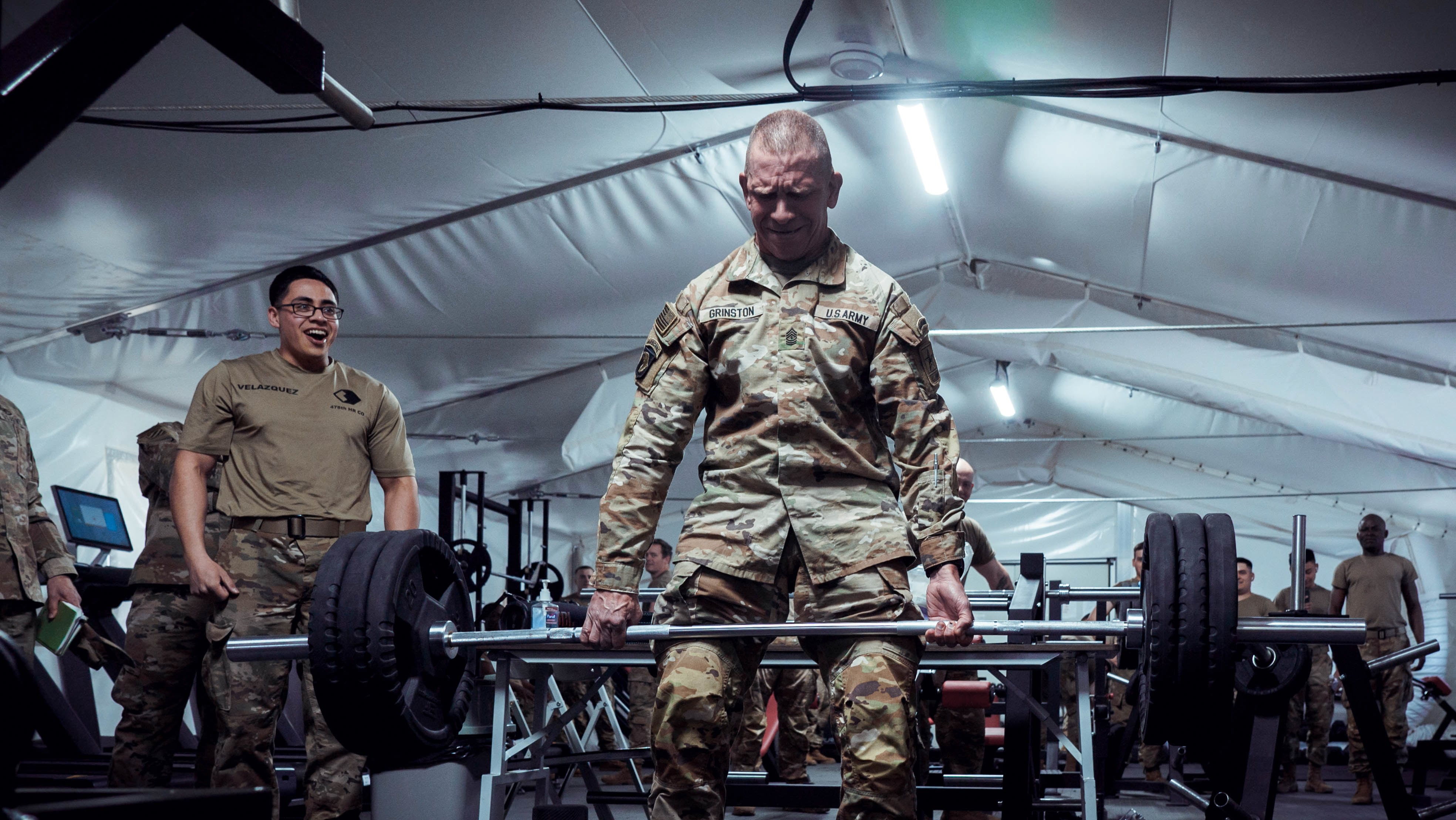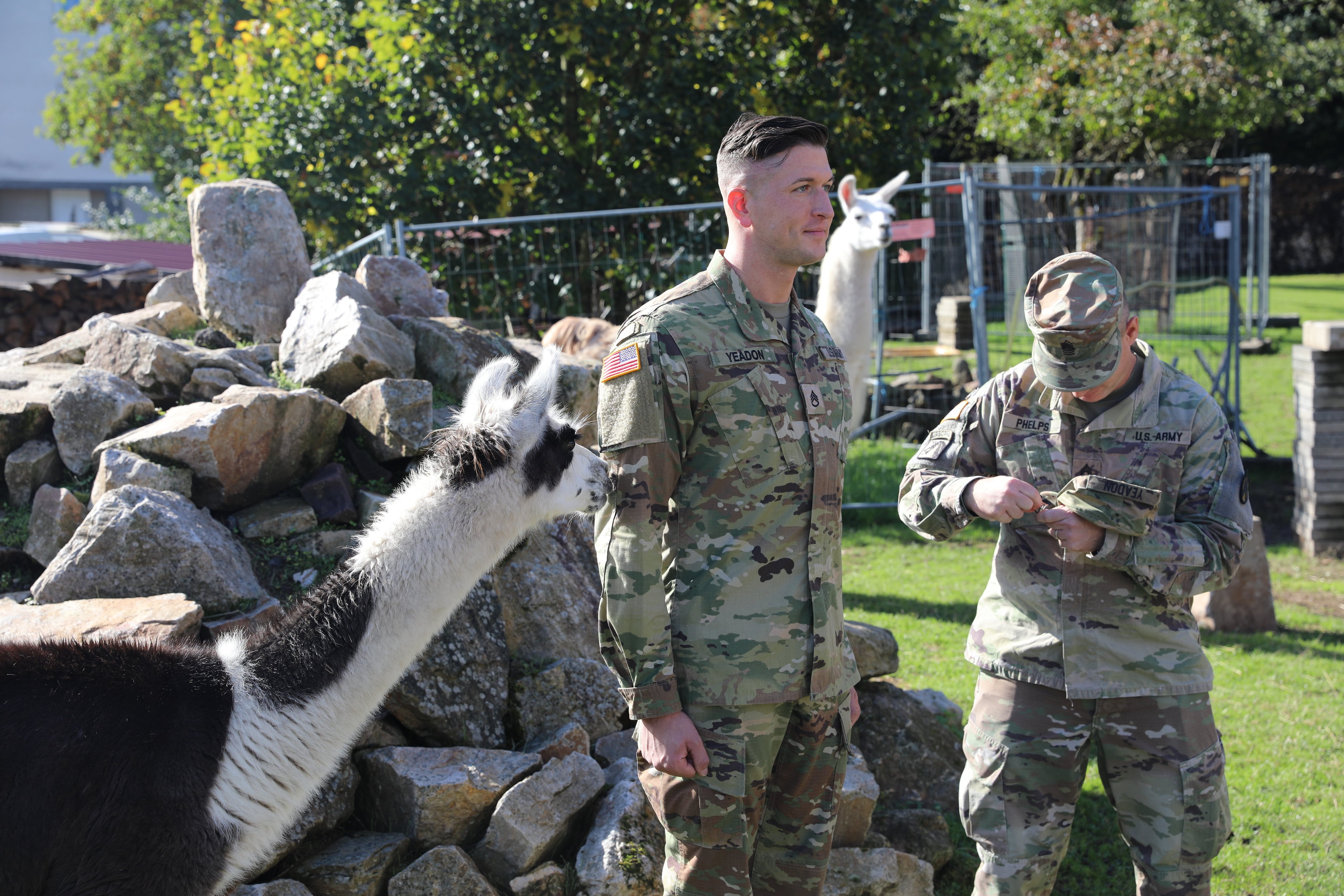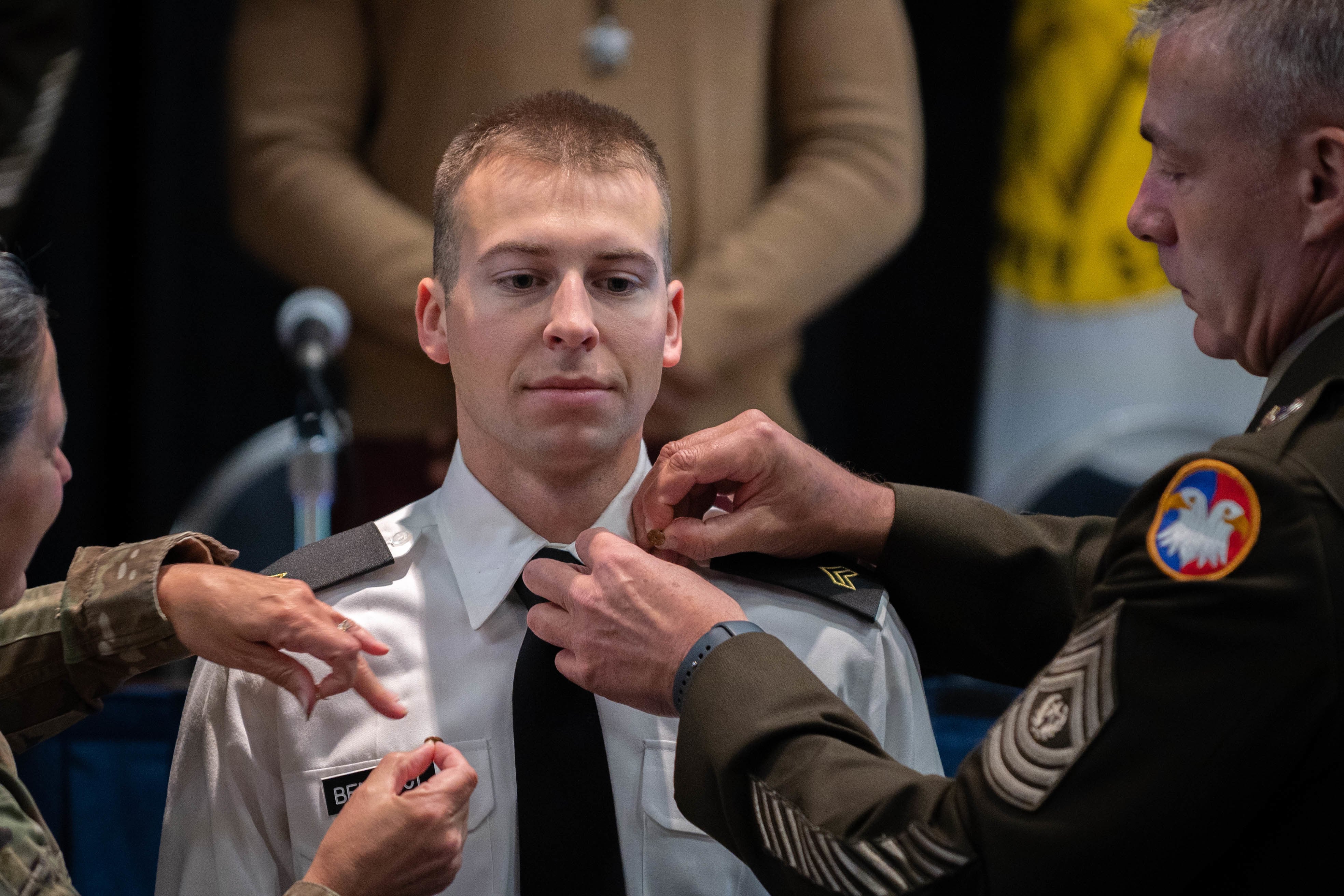WASHINGTON — A year ago, Sergeant Major of the Army Michael Grinston announced a “temporary” promotion policy across the Army’s enlisted force after backlogs in professional military education forced the Army to delay a new policy of training and educating the best-qualified NCOs before promoting them to the next grade.
And Wednesday, during his annual initiatives briefing at the Association of the U.S. Army conference, in the same room where he announced the policy a year prior, Grinston acknowledged that the school delays that inspired the policy remain an issue.
That means the policy — which allows otherwise eligible enlisted troops to promote temporarily to the next enlisted grade with a one-year period to complete their required training — will continue.
“I really wanted to announce that we don’t need that [promotions] exception to policy, but that’s incorrect,” said Grinston. “For the next year, or until we do better getting our soldiers to school on time, we are going to keep the...policy in place.”
He suggested the Army may reevaluate the move after three months.
RELATED

The continued bottleneck at the military schools required for soldiers to promote — such as the Basic, Advanced, Senior and Master Leader courses — has stymied the Army’s efforts to ensure the best troops are selected to attend training ahead of their peers and earn quicker promotions. Thus, the Army’s revamped “select, train, educate, then promote,” or STEP, vision for enlisted talent management remains unrealized.
While the service has implemented merit-based promotion boards to screen troops for sergeant first class and above, it’s still having issues getting soldiers to the right training “in time to get promoted,” Grinston acknowledged.
“We’ve...got to get those soldiers to school, and we’ve got a lot of work to do,” the Army’s top NCO said.
What’s the future of STEP talent management policy?
The issues with implementing STEP have led senior human resources professionals to even evaluate whether the policy should continue, the Army’s top enlisted HR soldier, Sgt. Maj. Mark Clark, explained in a phone interview ahead of AUSA.
Clark is the Army G-1 sergeant major.

“When we transitioned from the promotion board system to the [new merit] evaluation board system, one of the key reasons why we did that...[was] to have a system that was flexible and able to respond to emerging requirements,” said Clark.
Hypothetically, once the schools are caught up and the evaluation board list is used to build a bench of trained NCOs waiting for their promotions, the service can tap eligible NCOs for immediate promotion based on monthly manning needs and their soldier’s spot on the order of merit list.
But, Clark explained, “although we evolved the promotion system to give us the ability to surge or to dial back promotions...on the fly,” the service’s training pipelines don’t yet have that flexibility to meet demand-driven needs.
That challenge has proved daunting. And it’s also what initially led the Army to begin temporary promotions for all NCOs on Jan. 1.
Officials from Army Human Resources Command inadvertently used an incorrect order of merit list to select promotable sergeants first class to attend the Master Leader Course for promotion to master sergeant. This improperly assigned seats based on seniority rather than merit for the centralized course that prospective E8s attend regardless of career field.
Higher-rated NCOs were repeatedly passed over for promotion before the Army realized the problem.
The issue is more complicated for the junior and mid-grade enlisted ranks, where installations and career fields manage their own promotion schools. For these decentralized courses, student capacity has long been determined by local or internal needs for the career field rather than merit-driven demand, and it’s not clear how the STEP philosophy change has affected their ability to train NCOs on time.
New tweaks to the promotion point worksheets that determine who makes the cut for sergeant or staff sergeant have entered the equation as well. Beginning in June 2023, expert badges and other skills will increase in value and the Army Combat Fitness Test will earn fewer points for hopeful NCOs, according to Military.com.
The struggles have left Clark and others asking tough questions about STEP’s viability.
“Do we maintain this [temporary promotion] posture? Do we go back to STEP as it is?” he asked in the interview with Army Times, which preceded the service’s decision to continue the temporary policy. “Or do we just relook (at) the entire policy as a whole as to what STEP will be?”
Davis Winkie covers the Army for Military Times. He studied history at Vanderbilt and UNC-Chapel Hill, and served five years in the Army Guard. His investigations earned the Society of Professional Journalists' 2023 Sunshine Award and consecutive Military Reporters and Editors honors, among others. Davis was also a 2022 Livingston Awards finalist.




